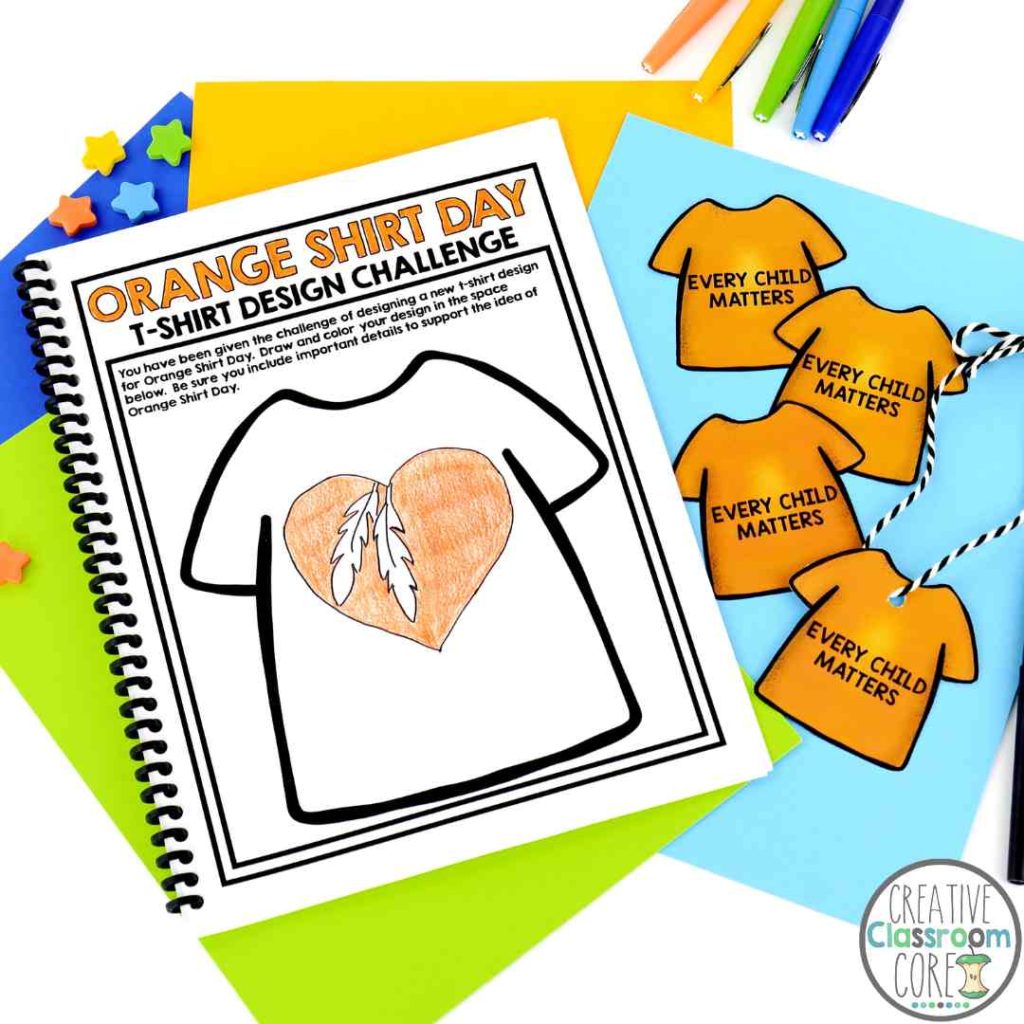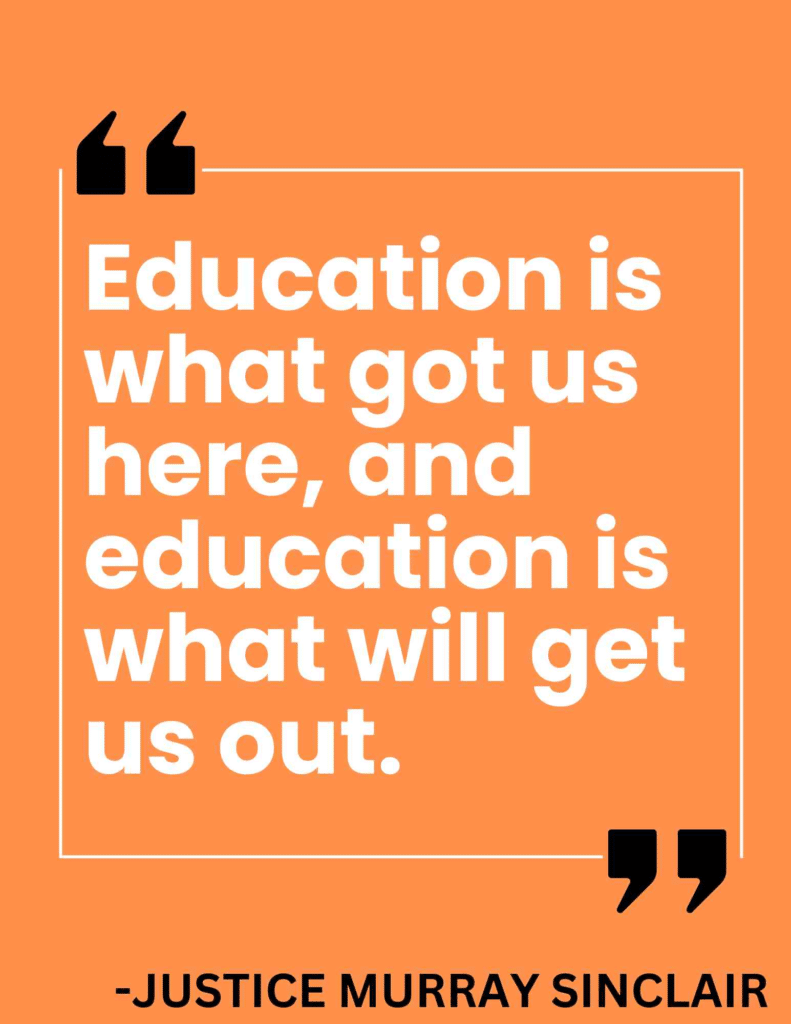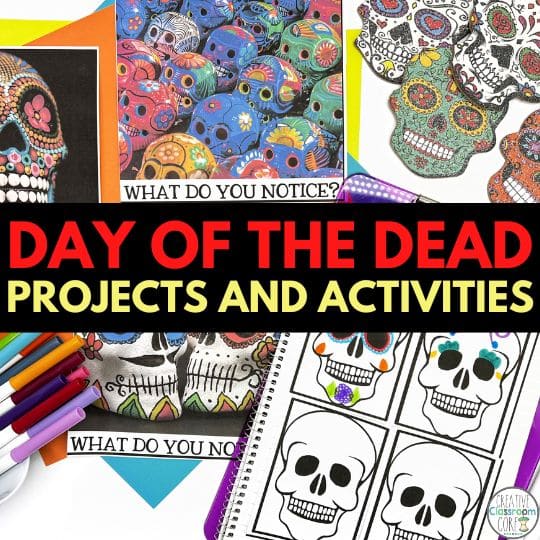Orange Shirt Day 2024
By MARISSA DESPINS Updated July 26, 2024
With Orange Shirt Day 2024 quickly approaching, it is an important reminder to spend time in our classrooms teaching our students about this important and sad period of Canadian history. Only through education can we ensure the errors of our collective past are not repeated in the future.
Looking for some Orange Shirt Day activities that you can print and use in your classroom? Click on the image or button below to see all of the Orange Shirt Day 2024 resources available in my TPT shop!
Purpose and Significance
The purpose of Orange Shirt Day is to to honor the survivors of residential schools, raise awareness about their lasting impact, and promote the message that “Every Child Matters.” Observed annually on September 30th, the day serves as a reminder of the traumatic experiences faced by Indigenous children who were forcibly removed from their families and communities and placed in these schools. Students who were forced to attend these schools often endured neglect, abuse, and cultural erasure.
History of Orange Shirt Day
Orange Shirt Day is a meaningful educational initiative that commemorates the experiences of Indigenous children in the Canadian residential school system. Held annually on September 30th, this day serves as a solemn reminder of the injustices faced by Indigenous communities as part of Canada’s colonial history.
The tradition began with the story of Phyllis Webstad, who, as a young child, had her new orange shirt taken away from her on her first day at a residential school. This event symbolizes the loss of identity and culture that Indigenous children endured in these institutions.
Orange Shirt Day 2024 is a platform for raising awareness about the intergenerational impact of residential schools, promoting reconciliation, and acknowledging the resilience and strength of Indigenous peoples. It is an essential component of Canadian education, fostering a deeper understanding of Indigenous history and promoting dialogue towards a more inclusive and equitable future.
Activities for Orange Shirt Day 2024
Looking for ways to incorporate Orange Shirt Day activities into your classroom curriculum this year? Read on for some creative activities.
Contests and competitions
1. National Orange Shirt Day Art Contest
Many schools and communities across Canada hold art contests to commemorate Orange Shirt Day. Students are invited to create artwork that reflects the themes of reconciliation, healing, and Indigenous culture. These contests encourage students to express their understanding and support for Indigenous peoples through visual arts.
2. Orange Shirt Day Essay Competition
Teachers can organize an essay competition where students write about the significance of Orange Shirt Day, the history of residential schools, or their reflections on reconciliation. This contest helps students deepen their understanding of the issues and encourages them to articulate their thoughts in a meaningful way.
3. Classroom Poster Design Contest
A poster design contest can be a creative way for students to engage with Orange Shirt Day. Students can work individually or in groups to design posters that raise awareness about the impact of residential schools and the importance of reconciliation. Posters can be displayed around the school or community center, and winning designs can be printed and distributed more widely. This activity combines artistic expression with educational outreach.
4. Creative Writing Competition
A creative writing competition can involve students writing poems, short stories, or reflections that honor Orange Shirt Day and its themes. This contest allows students to explore their feelings and knowledge about the day through creative expression. Selected pieces can be published in a school anthology, shared on the school’s website, or read aloud at a special Orange Shirt Day assembly.
5. School-Wide Orange Shirt Day T-Shirt Design Contest
Host a contest where students design their own orange shirts for Orange Shirt Day. Students can submit their designs, and the winning design can be printed on shirts for the entire school to wear. This contest not only engages students creatively but also unites the school in a visible show of support for the message that “Every Child Matters.”
These contests and competitions not only commemorate Orange Shirt Day but also provide meaningful ways for students to engage with and understand the importance of reconciliation and Indigenous history.
Educational Resources and Materials
Creative Classroom Core has a wide variety of engaging, no-prep resources for elementary and middle school to help you teach about this important topic. Click on the image below to see all of the resources available.
Official Merchandise and Fundraising
Looking for some places to purchase official Orange Shirt Day merchandise or to make donations? Check out the list below!
1. Orange Shirt Day Official Website
The Orange Shirt Day official website is the primary source for purchasing authentic Orange Shirt Day merchandise. This site offers a variety of items, including T-shirts, hoodies, and accessories, all designed to promote the message that “Every Child Matters.” The proceeds from merchandise sales support the Orange Shirt Society’s efforts to raise awareness about the impact of residential schools and promote reconciliation. By purchasing from the official website, you ensure that your contributions directly aid educational programs and initiatives focused on healing and supporting Indigenous communities.
2. Indigenous-Owned Businesses
Many Indigenous-owned businesses sell Orange Shirt Day merchandise, providing a great way to support Indigenous entrepreneurs while contributing to a meaningful cause. These businesses often offer unique designs that incorporate traditional Indigenous art and symbols, making each purchase not only a statement of support but also a celebration of Indigenous culture. Examples include companies like Strong Nations and Native Northwest, which offer a range of products, including clothing, accessories, and educational materials. Buying from these businesses helps sustain Indigenous economies and promotes cultural pride.

3. School and Community Fundraisers
Local schools and community organizations frequently organize fundraisers to sell Orange Shirt Day merchandise. These grassroots initiatives often involve students and community members in the creation and sale of items like T-shirts, wristbands, and posters. Participating in or purchasing from these fundraisers is an excellent way to support local efforts and engage in community-driven reconciliation activities. Funds raised typically go towards local educational projects, cultural events, and support services for residential school survivors and their families. Check with local schools, community centers, or social media groups for upcoming fundraising events in your area.
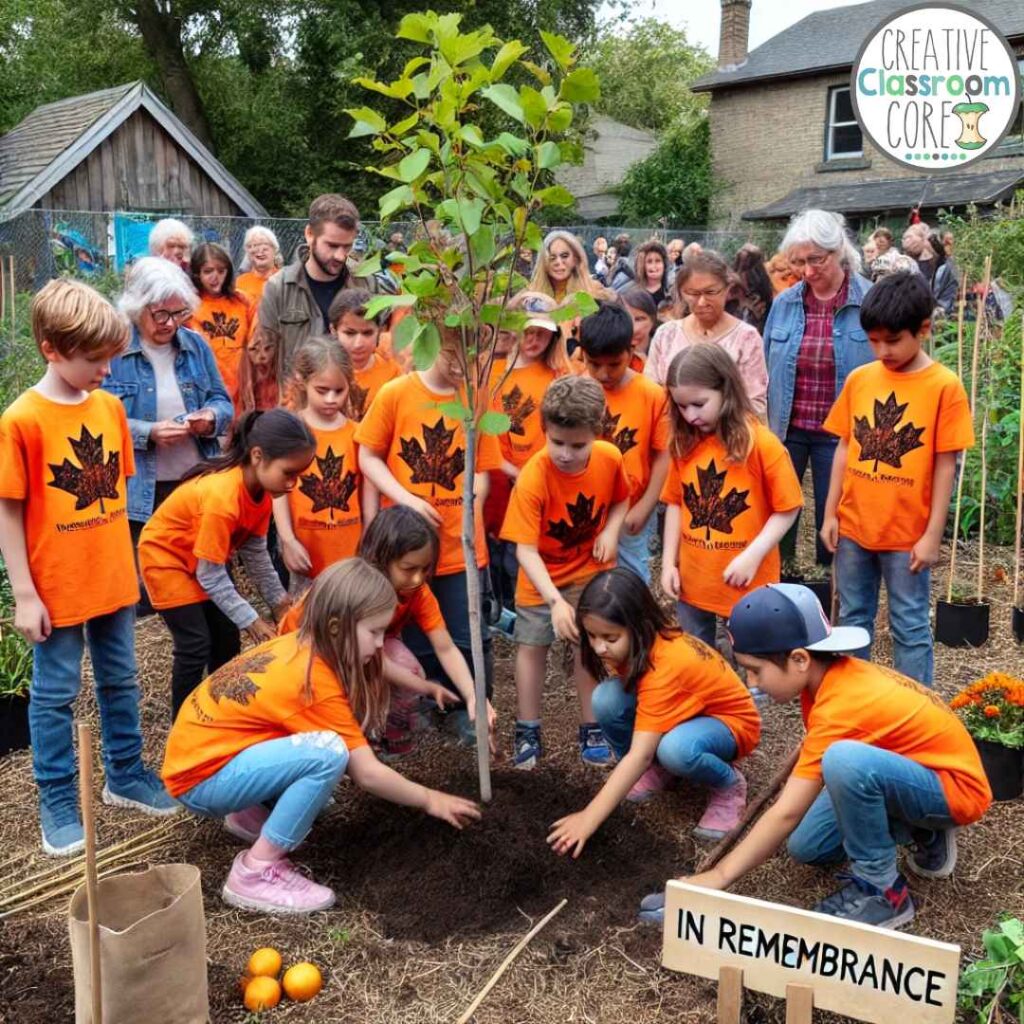
Why Should You Participate?
Teaching about Orange Shirt Day is important for several reasons. First and foremost, it sheds light on a dark chapter in Canadian history, allowing students to grasp the depth of suffering endured by Indigenous children in residential schools. By sharing these stories, educators create a space for empathy and reflection, fostering a more compassionate and informed society.
Learning about Orange Shirt Day promotes the values of truth and reconciliation, aligning with Canada’s commitment to addressing historical injustices and healing the wounds of the past. According to Justice Murray Sinclair, “Education is what got us here, and education is what will get us out”. Teaching our students about the values of truth and reconciliation is an important step towards healing the injustices of the past.
Teaching students about Orange Shirt Day also provides an opportunity for Indigenous voices and perspectives to be heard. This helps foster respect for Indigenous cultures and encourages a sense of unity and understanding among all Canadians.
Ultimately, teaching about Orange Shirt Day empowers future generations to work towards a more inclusive, equitable, and harmonious society that recognizes and respects the rights and experiences of Indigenous peoples.
For detailed information on ways to incorporate Orange Shirt Day activities into your classroom curriculum, check out this blog post.
Raising Awareness about Residential Schools
Participating in Orange Shirt Days helps to raise awareness about the harsh realities of residential schools. Residential schools in Canada first opened in the 19th century. These institutions were primarily established with the aim of assimilating Indigenous children into Euro-Canadian culture, forcibly separating them from their families, communities, and cultural practices.

While attending residential school, Indigenous children were subjected to harsh conditions, cultural suppression, and often physical and emotional abuse.
The curriculum emphasized European languages, customs, and religious beliefs, while actively discouraging Indigenous languages and traditions.
The legacy of residential schools is marked by profound intergenerational trauma, as many survivors and their families continue to grapple with the lasting effects of the trauma inflicted upon them.
Recognizing the historical significance of residential schools is crucial for understanding the ongoing struggles faced by Indigenous communities and fostering a commitment to truth, reconciliation, and a more equitable future.
For more information on residential schools in Canada, check out this related post.
Commemorating the National Day for Truth and Reconciliation
Participating in Orange Shirt Day is a vital way to commemorate the National Day for Truth and Reconciliation, honoring the survivors of residential schools and acknowledging the injustices faced by Indigenous communities. By wearing orange and engaging in educational activities, individuals show solidarity with survivors and contribute to a collective commitment to reconciliation. This participation not only raises awareness about the historical and ongoing impacts of residential schools but also promotes understanding, healing, and a unified effort to ensure that the mistakes of the past are not repeated.
Honoring Survivors and Families
Participating in Orange Shirt Day is a meaningful way to honor the survivors of residential schools and their families, acknowledging their enduring strength and resilience. By wearing orange and engaging in related activities, individuals pay tribute to the profound hardships these survivors endured and the intergenerational impacts on their communities. This act of solidarity not only raises awareness about the injustices of the past but also supports the ongoing journey of healing and reconciliation.
How to Participate in Orange Shirt Day 2024
Orange Shirt Day is a powerful way to honor the experiences of residential school survivors, raise awareness about their history, and promote reconciliation. Here are some meaningful ways to participate and make a positive impact.
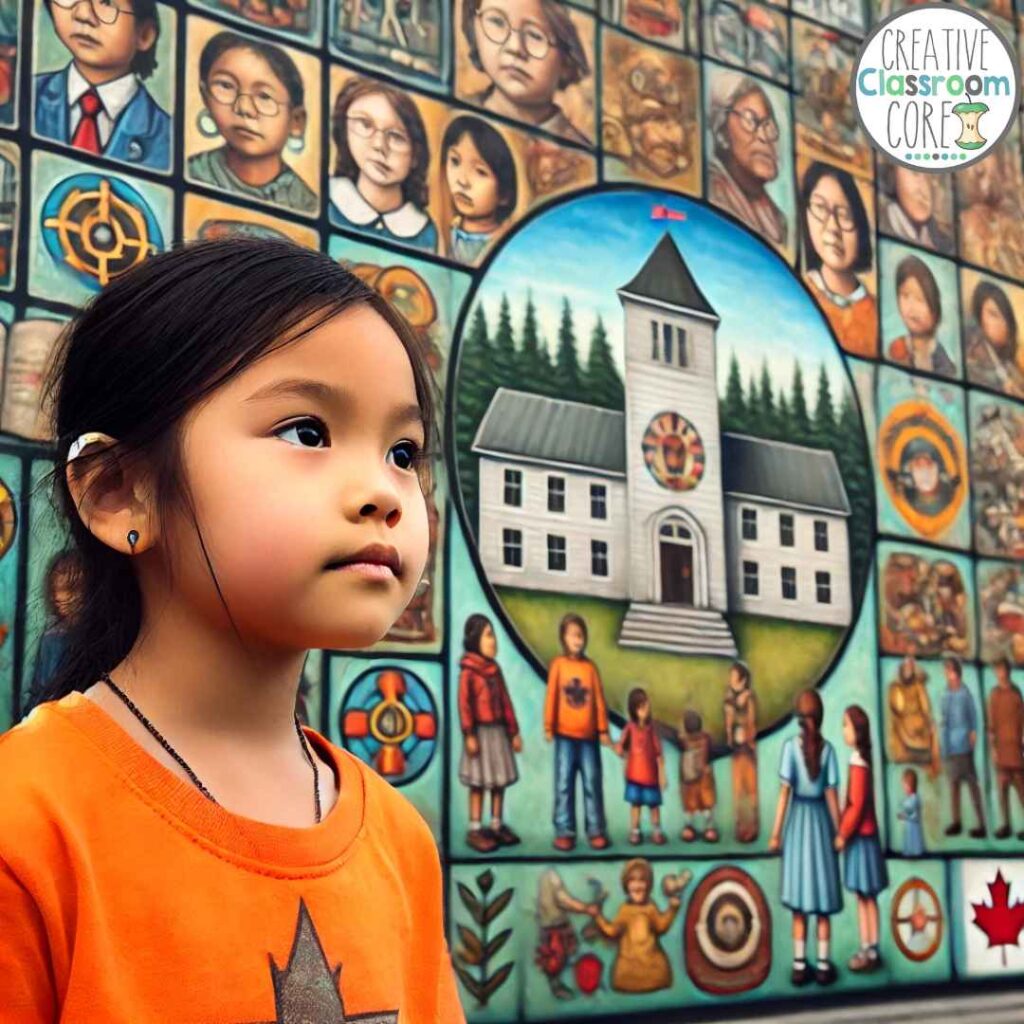
Wearing Orange Shirts
Wearing an orange shirt on September 30th is a simple yet impactful way to show solidarity with residential school survivors and their families. By wearing orange, you acknowledge their pain and resilience, and help spread the message that “Every Child Matters.” You can purchase official Orange Shirt Day merchandise from trusted sources to ensure your support contributes to the cause.
Organizing Events and Activities
Organizing events and activities in your school, workplace, or community can help raise awareness and foster a deeper understanding of the significance of Orange Shirt Day. Consider hosting educational workshops, film screenings, or art exhibitions that focus on the history and legacy of residential schools. Community gatherings, such as walks or vigils, can also provide a space for collective reflection and support. These activities not only educate participants but also create a sense of community and shared responsibility in the journey towards reconciliation.
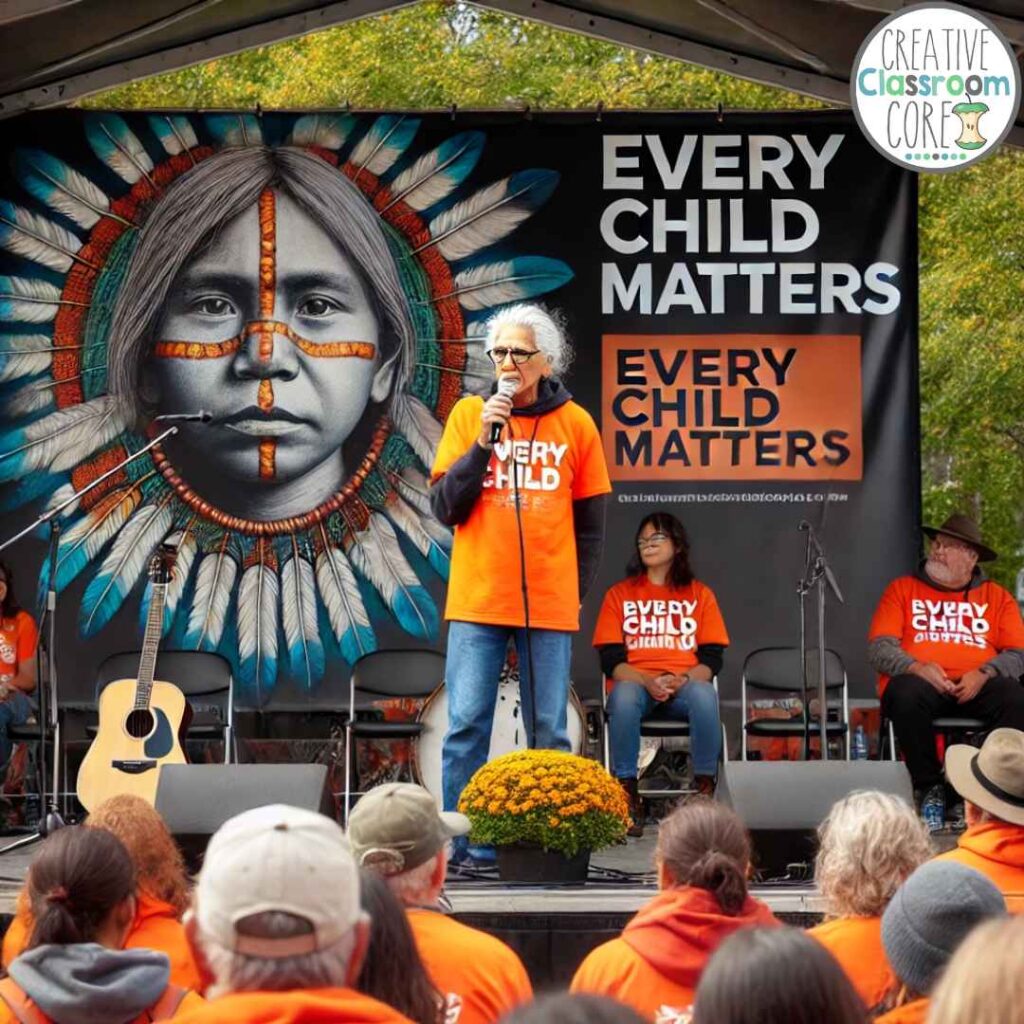
Sharing Stories and Experiences
Sharing stories and experiences related to residential schools is a powerful way to honor survivors and educate others. Invite residential school survivors or Indigenous speakers to share their stories with your group or community. Encourage students or participants to read books, watch documentaries, or listen to podcasts about the residential school system and its impacts. Additionally, using social media to share information, personal reflections, and educational resources can help amplify the message of Orange Shirt Day and reach a wider audience. By sharing these stories, we ensure that the voices of survivors are heard and that their experiences are acknowledged and respected.
Explore the Truth and Reconciliation Commission’s calls to action
The Truth and Reconciliation Commission (TRC) of Canada issued 94 Calls to Action to address the historical and ongoing impacts of residential schools and to advance the process of reconciliation. Exploring these calls to action is essential for creating a more inclusive and just society. Here are some key ways to engage with and support these vital initiatives.
Importance of the calls to action
The TRC’s Calls to Action are crucial because they provide a clear plan for addressing the injustices faced by Indigenous peoples in Canada. These calls cover various aspects of society, including education, health, justice, and culture. They aim to promote systemic change and healing. Understanding and supporting these calls is a step towards acknowledging the past, addressing current disparities, and ensuring that Indigenous peoples’ rights and cultures are respected and valued.
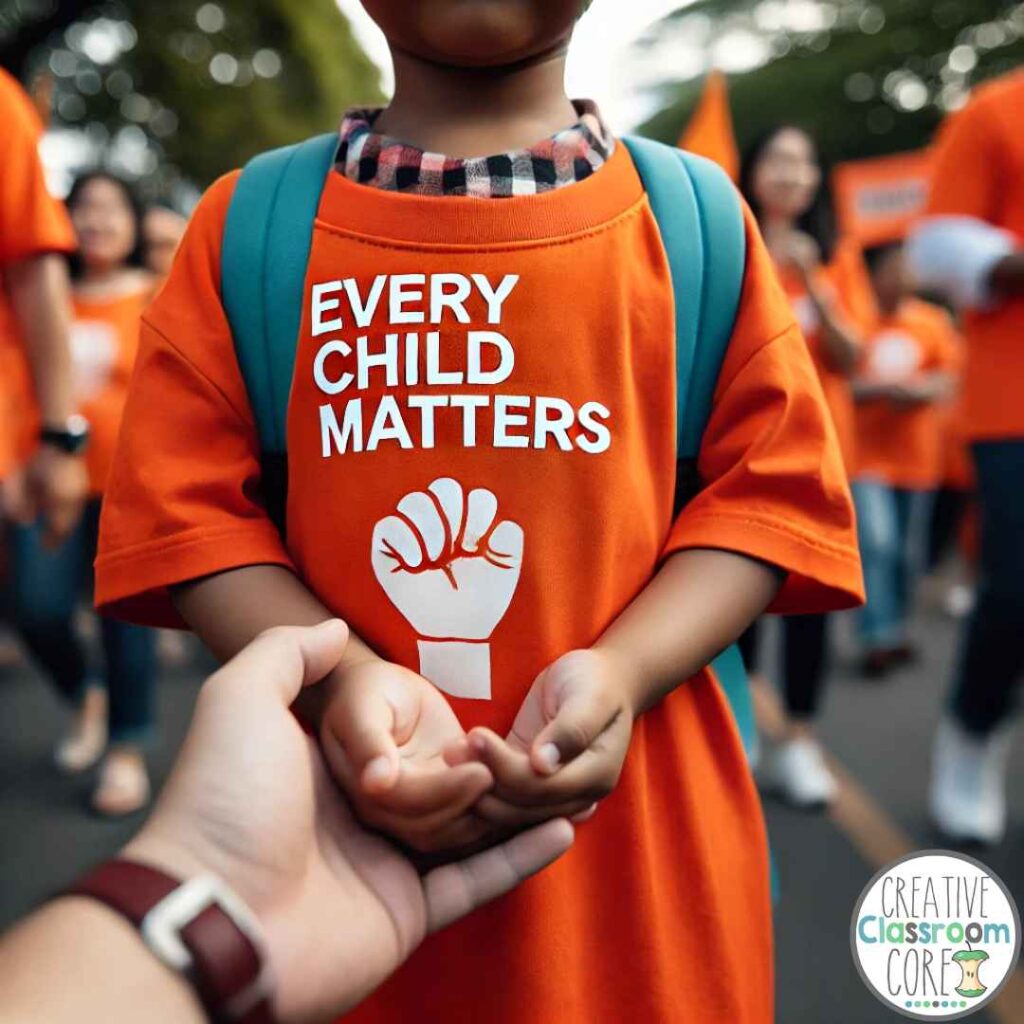
How Individuals and Communities can Contribute
Individuals and communities play a vital role in advancing the TRC’s Calls to Action. On a personal level, people can educate themselves about the history of residential schools and the specific recommendations of the TRC. This might include reading reports, attending educational workshops, and participating in discussions about reconciliation. Communities can organize events that promote awareness and understanding, such as public lectures, film screenings, and cultural festivals. Additionally, supporting Indigenous-led initiatives and businesses, advocating for policy changes, and incorporating Indigenous perspectives into educational curricula are practical ways to contribute. By taking these actions, both individuals and communities help to build a foundation for meaningful reconciliation and long-term positive change.
Learn about indigenous history and cultures in Canada
Interested in learning more about Indigenous History and Cultures in Canada? Read on to learn more!
Recognizing the diversity and richness of indigenous cultures
Recognizing the diversity and richness of Indigenous cultures is essential for fostering mutual respect, understanding, and reconciliation. By appreciating the unique traditions, languages, and histories of Indigenous peoples, we can better understand the profound impact of colonialism and work towards building stronger, more inclusive communities.
Understanding the impact of colonialism on indigenous communities
Colonialism has had a devastating impact on Indigenous communities, leading to the loss of land, culture, and autonomy. The imposition of foreign governance, residential schools, and assimilation policies disrupted traditional ways of life and inflicted deep psychological and cultural wounds. Recognizing these impacts is crucial for understanding the current challenges faced by Indigenous peoples. Acknowledging the history of colonialism allows us to appreciate the resilience and strength of Indigenous communities.
Building Bridges and fostering Understanding
Building bridges and fostering understanding between Indigenous and non-Indigenous communities involves active listening, learning, and collaboration. Educational initiatives that include Indigenous perspectives and histories in school curricula can help bridge knowledge gaps and get rid of stereotypes. Community events such as cultural festivals, art exhibitions, and storytelling sessions provide opportunities for meaningful interactions and shared experiences. Supporting Indigenous-led projects and businesses, and advocating for policies that respect Indigenous rights and sovereignty, also play a critical role in fostering mutual respect and cooperation.
Looking for additional information For teaching About Orange Shirt Day 2024?
Check out these related posts below.
Canadian Heroes to Inspire Your Learners
Favorite Indigenous Read Alouds
Strategies for Using Orange Shirt Day Quotes in the Classroom
Looking for a free resource to help you teach about Orange Shirt Day 2024?
Click on the image below to sign up for my email list and download this FREE set of Orange Shirt Day 2024 bookmarks and coloring pages. By signing up for my email list you will also gain access to periodic emails with free resources, teaching tips, and exclusive deals.


